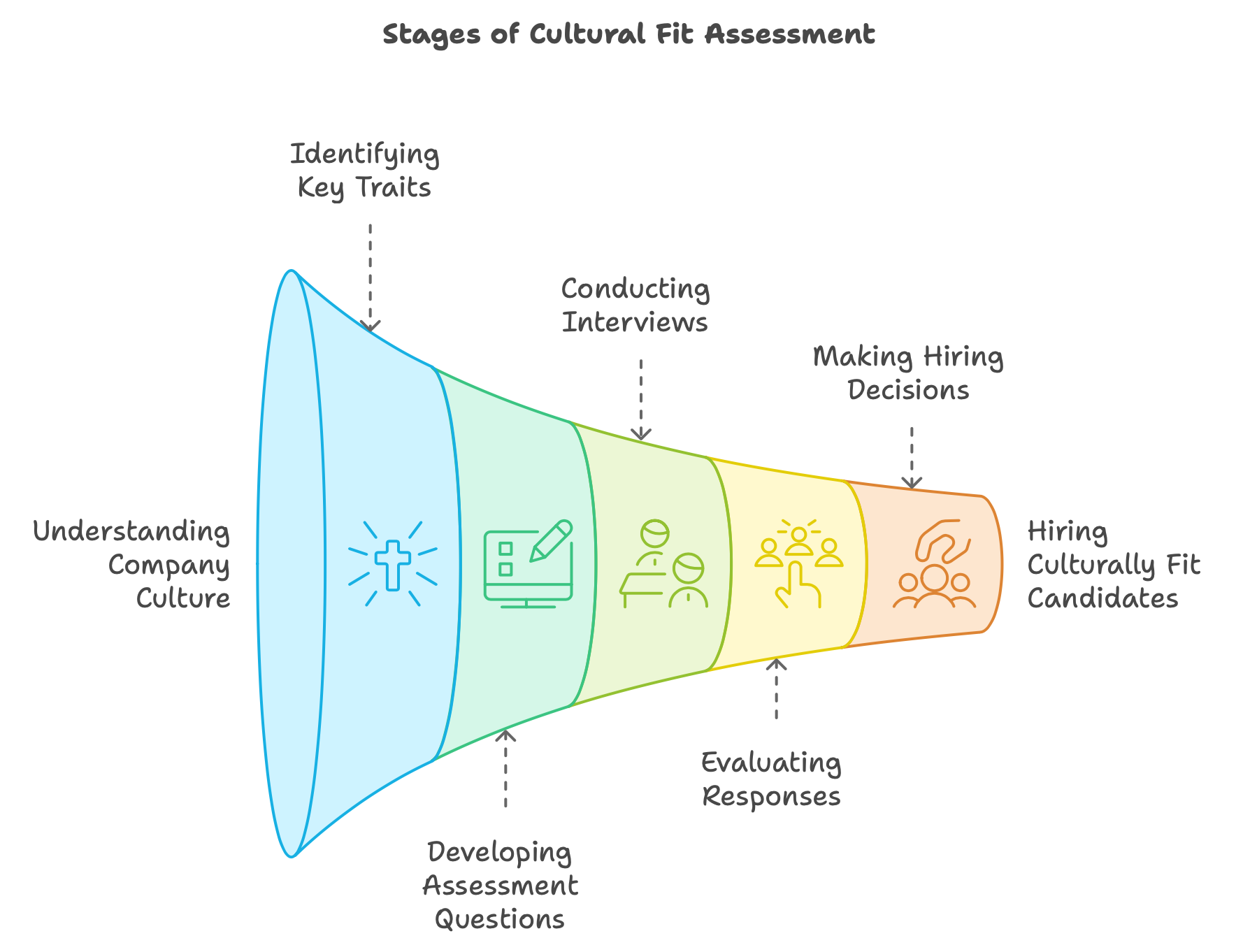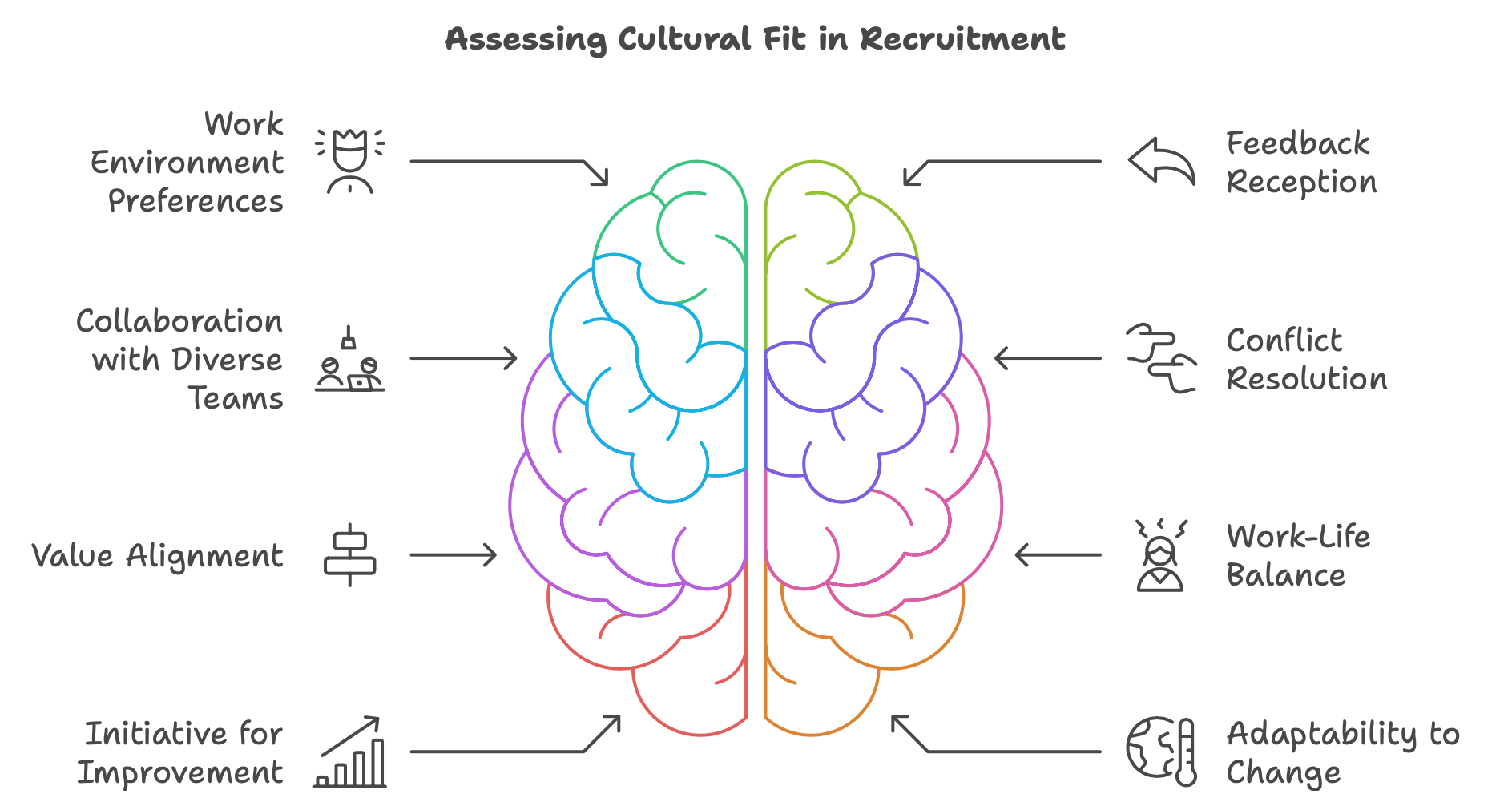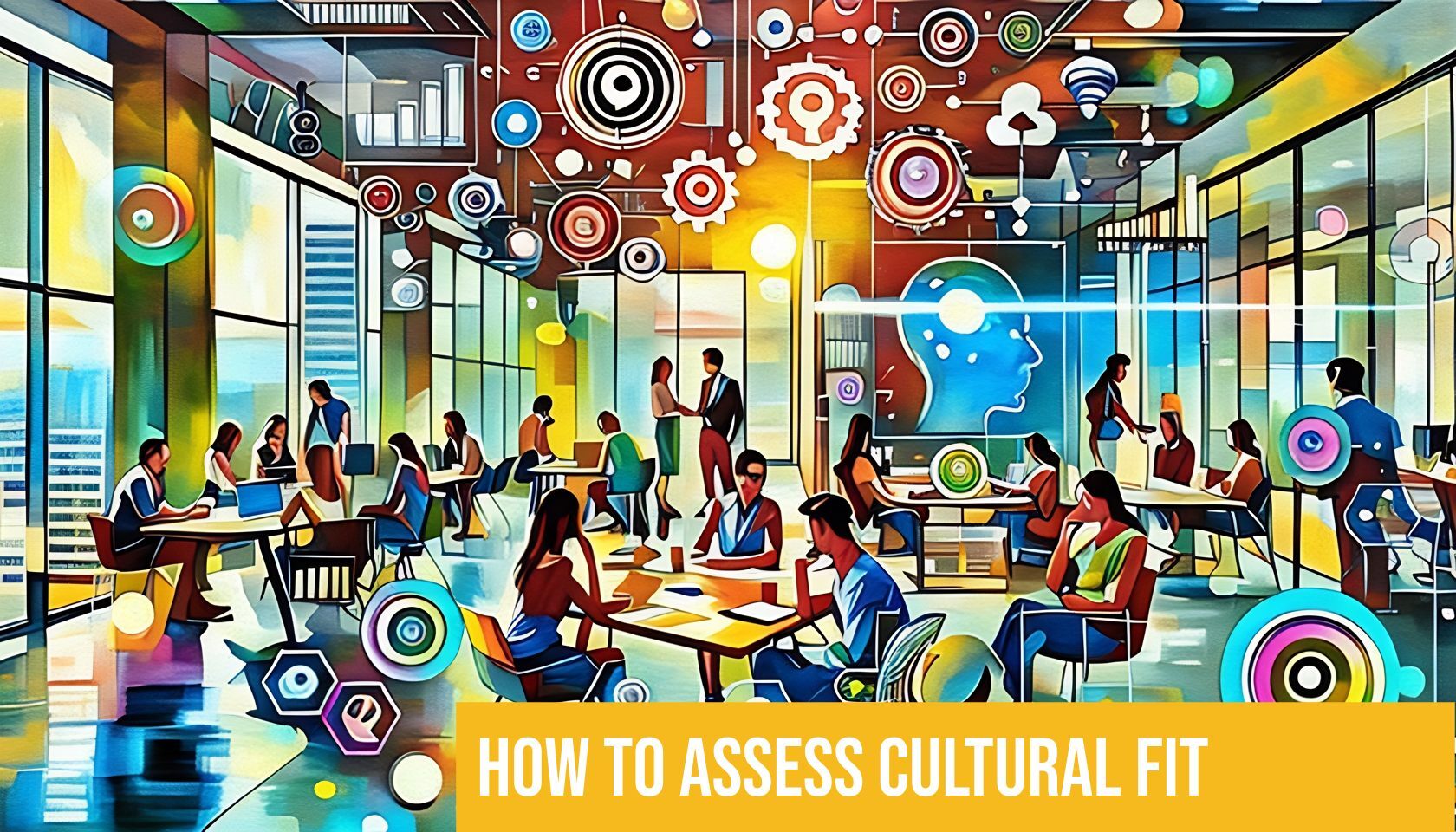Guide for a Recruiter: Questions to Assess Cultural Fit
Over the last 10 years, Company Culture has emerged as a pivotal topic within the industry, capturing the attention of organizations worldwide. The reason behind this heightened focus is the desire to find a harmonious balance that maximizes employee productivity while simultaneously driving better outcomes and achieving sustainable business results.

Redirecting Focus: Cultivating Creativity and Collaboration in a Changing Workplace
Looking ahead to the next decade, the significance of Company Culture is expected to grow even more pronounced. With the advent of AI-tools and automation, the landscape of work is undergoing a transformation. Repetitive tasks that were once prevalent are being gradually replaced by technology, freeing up valuable time and resources. This shift creates an opportunity to redirect energy and effort towards more creative endeavors, fostering an environment that thrives on fresh ideas and collaborative synergy among individuals, teams, and even across companies.
Recognizing the potential of this evolving dynamic, organizations are increasingly investing in their Company Culture. They understand that cultivating a strong and positive culture is not only conducive to employee well-being but also serves as a catalyst for innovation, employee engagement, and overall business success. By fostering a culture that nurtures creativity, encourages open communication, and embraces diversity and collaboration, companies can harness the full potential of their workforce.
Recognizing the potential of this evolving dynamic, organizations are increasingly investing in their Company Culture. They understand that cultivating a strong and positive culture is not only conducive to employee well-being but also serves as a catalyst for innovation, employee engagement, and overall business success. By fostering a culture that nurtures creativity, encourages open communication, and embraces diversity and collaboration, companies can harness the full potential of their workforce.

Assessing Cultural Fit: Essential Interview Questions for Recruiters
To assess cultural fit during an interview, recruiters can ask candidates a combination of general and specific questions that delve into their values, work style, and behaviors. Here are some key questions to consider:
Remember to tailor these questions to your organisation's specific values and culture. Additionally, follow-up questions can help delve deeper into a candidate's responses and gain a more comprehensive understanding of their cultural fit.
Read our previous Guide with the critical criteria in assessing cultural fit.
I also recommend you to read related articles:
How we differentiate candidates for our customers and why cultural fit is one of the key criterias: Building High-Performance Teams: Mastering A-Player Talent Acquisition and People Management
Reasons we recommend Startups use our expertise: Why Startups Need Fractional HR: Immediate Expertise at a Fraction of the Cost
How the company culture evaluate (or should evaluate) during the growth from a tiny organization to a large business - From Startup to Unicorn: How Corporate Culture and Talent Acquisition Evolve Together
Reasons Why we recommend our customers deep dive into HR Branding: The Key to Attracting Talent and Building Long-Term Loyalty before staring immediate hiring talents.
- Can you tell me about a work environment where you thrived the most and why? This question helps gauge if the candidate's preferences align with your organisation's culture and whether they have the potential to excel in a similar work environment.
- How do you prefer to receive feedback, and how do you handle constructive criticism? This question reveals the candidate's openness to feedback and their ability to adapt and grow within your organisation's feedback culture.
- Can you share an example of a situation where you had to work collaboratively with a diverse team? How did you ensure effective collaboration? This question assesses the candidate's experience and attitude towards working with diverse colleagues and their ability to foster a collaborative environment.
- Describe a time when you faced a challenge or conflict at work. How did you handle it? This question helps evaluate the candidate's problem-solving skills, conflict resolution abilities, and how they align with your organisation's preferred approach to handling challenges.
- What do you value most in a work environment, and how do you ensure it aligns with your personal values? This question provides insight into the candidate's values and whether they align with your organisation's cultural values and priorities.
- How do you maintain work-life balance and handle stress in the workplace? This question allows you to assess whether the candidate's approach to work-life balance and stress management aligns with your organisation's culture and expectations.
- Can you describe a situation where you took the initiative to improve a process or implement a positive change in the workplace? This question helps gauge the candidate's proactiveness, adaptability, and their potential contribution to your organisation's continuous improvement and innovation efforts.
- How do you stay updated and engage with industry trends and developments? This question assesses the candidate's level of interest in their field, their commitment to professional growth, and their potential fit within a culture that values learning and development.
- Can you provide an example of a time when you had to adapt to a significant change or ambiguity in your work environment? This question evaluates the candidate's flexibility, adaptability, and ability to thrive in dynamic or uncertain situations, which can be indicative of their fit within your organisation's culture.
Remember to tailor these questions to your organisation's specific values and culture. Additionally, follow-up questions can help delve deeper into a candidate's responses and gain a more comprehensive understanding of their cultural fit.
Read our previous Guide with the critical criteria in assessing cultural fit.
I also recommend you to read related articles:
How we differentiate candidates for our customers and why cultural fit is one of the key criterias: Building High-Performance Teams: Mastering A-Player Talent Acquisition and People Management
Reasons we recommend Startups use our expertise: Why Startups Need Fractional HR: Immediate Expertise at a Fraction of the Cost
How the company culture evaluate (or should evaluate) during the growth from a tiny organization to a large business - From Startup to Unicorn: How Corporate Culture and Talent Acquisition Evolve Together
Reasons Why we recommend our customers deep dive into HR Branding: The Key to Attracting Talent and Building Long-Term Loyalty before staring immediate hiring talents.
UnitiQ's Tailored HR Solutions for a Dynamic Workforce
UnitiQ provides customized HR services designed to help organizations adapt to the evolving workplace. We focus on enhancing company culture, streamlining talent acquisition, and implementing strategies that foster creativity and collaboration.
Our expertise enables businesses to navigate changes, ensuring they maximize employee potential while maintaining a positive and innovative work environment.
Contact me, Olga Fedoseeva, Fonder at UnitiQ, directly:
My Telegram
My LinkedIn
Our expertise enables businesses to navigate changes, ensuring they maximize employee potential while maintaining a positive and innovative work environment.
Contact me, Olga Fedoseeva, Fonder at UnitiQ, directly:
My Telegram
My LinkedIn








